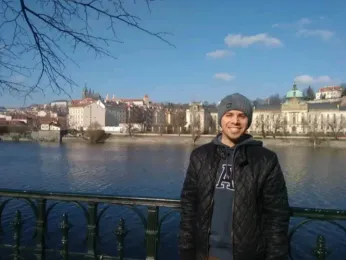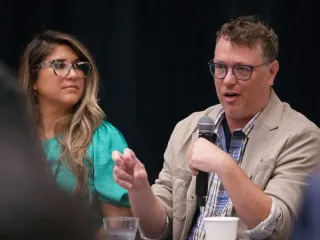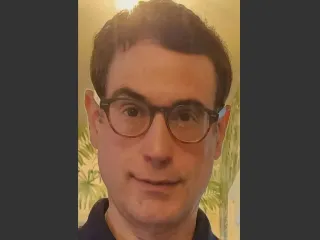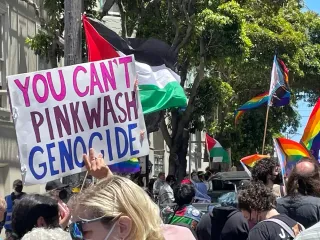
October 8, 2025
Guest Opinion: Universities are treading a dangerous path
Brendan Sullivan-Sariñana READ TIME: 3 MIN.
Several months ago, I felt compelled to write the author of the Bay Area Reporter’s article on the rescission of naming the LGBTQ+ center at Victory Valley College after José Julio Sarria because it so closely matched a recent event in my own life. In 2019, I established the Brendan and Kevin Sullivan-Cheah Scholarship for Equity and Inclusion at Binghamton University in upstate New York, my alma mater. The name, suggested by the university itself, reflected both my commitment to LGBTQ+ students and the institution’s public embrace of inclusion. It felt meaningful. As a gay, Chicano alumnus, I was proud to give back, not just with financial support, but by sending a visible message that queer students belonged.
For several years, the scholarship did exactly that. My husband and I received letters from recipients. The university featured the award online. It felt like a shared commitment to equity and dignity. Then, quietly and without warning, the university erased it.
Earlier this year, as I prepared for a meeting with Binghamton’s foundation to endow the scholarship in perpetuity, I went to look it up online. It was gone. Not renamed. Not updated. Just gone. Scrubbed from the website. During and after the meeting, no one brought this up. When I pushed, I got vague, calculated responses that the scholarship may continue in some form. Or that staff would work with me to make sure students received the money. No one seemed to want to acknowledge the humiliating push back into the closet this meant.
The experience left me feeling humiliated and used. It was as though my story, my contribution, and my identity had been deemed politically inconvenient. Binghamton still wanted my money but not my identity.
I've struggled with how to respond. I tend to lean toward the overly polite and diplomatic. But as time has gone by, my feelings of humiliation and resolve have only sharpened. I encourage all of us to be honest and confident in explaining our experiences, even when it’s uncomfortable. Especially when it’s uncomfortable.
Over the last eight months, we’ve seen a dramatic backlash against LGBTQ+ rights, from book bans and withdrawal of trans health care to political and financial threats against public institutions. Universities like Binghamton are feeling that backlash. And instead of resisting it, they are capitulating. This is how power corrupts institutions: through forcing a choice between their stated mission and power. It’s clear that power is winning.
Institutions we thought worthy of support will bend when confronted with power. The people who work inside them, no matter how well-meaning, will bend, too. They will not put themselves at risk to defend you. They will not hold the line when it threatens their funding, their leadership, or their careers.
I became complacent by achieving the financial and personal security that has eluded so many of us in the community. I thought that stability was fixed and gave me currency to influence and contribute in ways others have. I thought the institutions that I was a part of would defend me. I was wrong.
That’s why we must defend ourselves. We must be intentional about where we direct our time, talent, and money. Instead of giving to institutions that crumble at the first sign of controversy, we should support the people and organizations doing the hard work of protecting our rights-those on the ground, in courtrooms, in legislatures, in classrooms, in community centers. The ones who don’t disappear when the pressure mounts. The ones who show up.
The scholarship no longer exists, and I won't be donating to BU again because I can’t trust an institution that won’t stand by its own values. If this current fever dream breaks, watch closely at how the same businesses, people, and organizations that won't stand up to power now will expect us to hold them in the same regard.
I won't, and neither should you.
Brendan Sullivan-Sariñana, is a gay man and Chicano. He was proudly born and raised in New York but has lived in the Bay Area for about 12 years, the last seven of which have been with his husband, Kevin Cheah.



